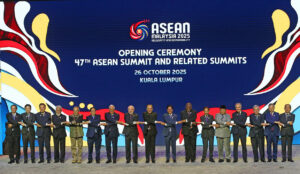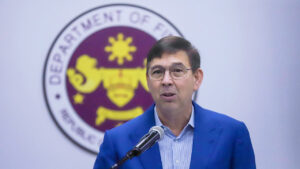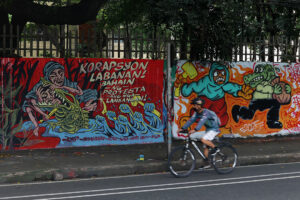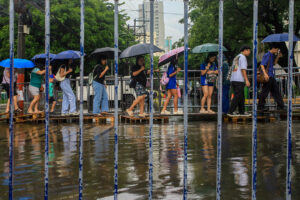By Chloe Mari A. Hufana,Reporter
KUALA LUMPUR — Philippine President Ferdinand R. Marcos, Jr. welcomed Timor-Leste’s formal admission into the Association of Southeast Asian Nations (ASEAN) on Sunday, describing it as a “historic milestone” that strengthens the region’s pursuit of unity and shared prosperity.
“Today marks a historic milestone for Southeast Asia as we officially welcome Timor-Leste into the ASEAN family,” Mr. Marcos said in a statement after the opening of the 47th ASEAN Summit in Kuala Lumpur and after he signed the official declaration admitting Dili to the bloc.
Timor-Leste is the 11th member of ASEAN. Its accession opens up a market of more than 670 million people. Malaysia, the host of the bloc, will pass the baton to the Philippines on Tuesday. ASEAN chairmanship goes by in an alphabetical order with a one-year tenure.
The bloc members are Brunei, Cambodia, Indonesia, Laos, Malaysia, Myanmar, the Philippines, Singapore, Thailand, Vietnam and Timor-Leste.
The regional bloc is holding its annual meeting at the Malaysian capital, tackling topics across geopolitics, geoeconomics, money laundering and climate change.
The summit was also attended by notable world leaders such as United Nations Secretary-General Antonio Guterres and US President Donald J. Trump.
Timor-Leste’s long-delayed entry into ASEAN marks a major milestone that underscores the bloc’s unity and growing role in strengthening South-South cooperation amid global uncertainties, said Josue Raphael J. Cortez, ASEAN Studies lecturer at De La Salle-College of St. Benilde in Manila.
While some fear the move could weaken cohesion, he argued it could spur economic diversification by expanding ASEAN’s trade in petroleum and liquefied natural gas (LNG) — Timor-Leste’s key exports — and enhance the bloc’s leverage in mitigating trade shocks affecting developing economies.
“Timor-Leste’s accession to ASEAN is undoubtedly a much anticipated milestone for the bloc’s history as it took a decade for it to become a full member,” he said in a Facebook Messenger chat.
“With petroleum and oil-related sanctions being used as a geoeconomic weapon today, ASEAN may collectively harness its petroleum reserves as an alternative market where other nations may import their oil and LNGs from,” he added.
MARCOS BILATERAL TALKSAlso on Sunday, Mr. Marcos met with the leaders of Cambodia, Thailand, Canada, Japan and the European Union on the sidelines of the Summit, reaffirming regional cooperation and shared commitments to stability and growth.
During talks with Cambodian Prime Minister Hun Manet, Mr. Marcos reaffirmed Manila’s support for a peaceful resolution to the Thai-Cambodian border conflict through dialogue and adherence to international law.
Palace Press Officer Clarissa A. Castro told reporters at the Kuala Lumpur Convention Center the President welcomed progress in resolving the dispute, as witnessed by Mr. Trump.
Mr. Hun, in turn, expressed Cambodia’s strong support for the Philippines’ ASEAN chairmanship in 2026.
Mr. Marcos also met with Thai Prime Minister Anutin Charnvirakul, offering condolences on the passing of Her Majesty Queen Sirikit.
Both leaders pledged to deepen cooperation in tourism, trade and investment, while exploring stronger agricultural exchanges and private sector engagement.
In a separate meeting, Mr. Marcos and Canadian Prime Minister Mark Joseph Carney highlighted the robust people-to-people ties between their nations.
Mr. Marcos thanked Canada for its continued support for the Philippines and reaffirmed shared commitments to a rules-based international order, citing the United Nations Convention on the Law of the Sea.
Ms. Castro said both leaders agreed to expand cooperation in trade, investment and energy and to sustain constructive engagement within ASEAN frameworks.






